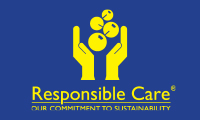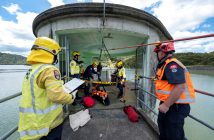Further investment into vocational education and training in Budget 2022 has been welcomed by the organisation leading New Zealand’s vocational training, Te Pūkenga.

Te Pūkenga was established in 2020 as part of the Reform of Vocational Education (RoVE) to better meet the needs of learners, employers and communities. As the country’s largest tertiary education provider, it brings together Institutes of Technology and Polytechnics and some Transitional Industry Training Organisations to put ākonga (learners) at the centre of vocational and applied learning.
Te Pūkenga Chief Executive Stephen Town says the investment announced as part of Budget 2022 would ensure the network was well placed to support its students to get the training opportunities they need and to strengthen the skilled workforces New Zealand needs to recover from the impacts of Covid-19.
“We applaud the government for further investing in vocational training, and particularly work-based learning.
“Our ākonga in work-based learning are receiving critical training that is integral to build a highly skilled, thriving workforce. Recognising the effort and investment of employers in their apprentices is a key step in supporting our nation’s skills development.”
Budget 2022 includes a 2.75 percent increase to tuition and training subsidiaries, as well as more than $72 million to meet the current demand including for apprenticeships. This is in addition to the $230 million investment in trades training, including the Apprenticeship Boost, announced by the Government in May.
“The number of people engaged in work-based learning has increased significantly and that’s forecast to continue,” Town says.
“We’ve seen a 50 per cent increase in the number of building and construction apprentices, for example. The increase will support the existing 49,875 ākonga training with Te Pūkenga in work-based learning, including 9,545 ākonga Māori.
“The funding is well targeted and enables us to support our priorities of equity and driving participation. That means delivering customised learning approaches that meet the needs of learners and trainees wherever they are.”
“As a country we must strongly support that growth because skilled people, across all sectors, are desperately needed.”
In addition to the work-based learning boost, Te Pūkenga has also been allocated $40 million to address leaky building issues and address urgent building repairs on campuses nationwide. Funding will be prioritised for buildings used by staff and learners.
“We know our campuses are important to local communities – and they’re important to us. This budget will allow us to ensure our learning spaces are fit-for-purpose, welcoming and safe – and meet the needs of our learners and our communities,” Town says.







